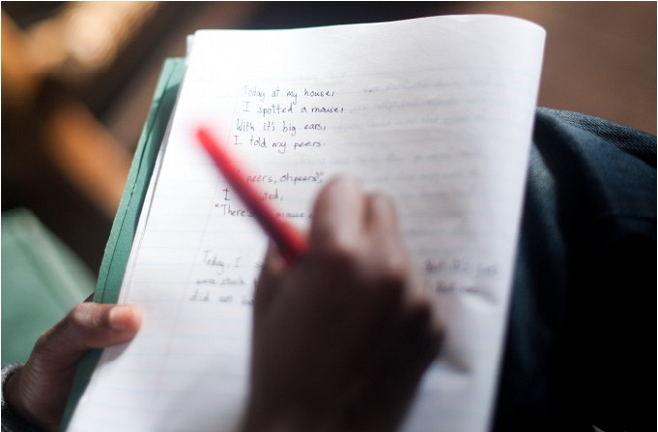Translating Culture

The investment in our sector from the Calouste Gulbenkian Foundation over recent years has seen a remarkable amount of activity take place, a consolidation of networks nationally and internationally and a huge leap forwards in the arts sector and wider public understanding of the value of what we do. Without Gulbenkian Foundation support, so much of what has happened in our world would have remained unconnected, under developed and ignored.
So what is it that we do?
Well, as a partnership that reaches from the country’s only centre for freedom of expression, literacy and literature (www.freewordcentre.com) to a boutique research and campaign group that celebrates and promotes the translation of children’s literature (www.outsideinworld.org.uk), we cover a lot of ground. At the heart of our shared concerns, however, lies a belief in the vitality of literary translation as a means of cultural exchange and increased understanding across communities and borders at a time when nothing is more urgently needed. As a corollary to this belief, we are also all passionate about the art and skill of literary translation and the need for translators to be supported, nurtured and valued as a vital part of the cultural ecology. At the heart of new thinking, creative diversity, cross cultural understanding and imaginative sympathy, literary translation (of books, computer games, songs, whatever you can imagine can be translated) offers a crucial set of skills and practices for society as a whole, as well as the arts.
As part of our campaign to develop a National Centre for Writing in Norwich, UNESCO City of Literature at the heart of which lies national and international exchange – Writers’ Centre Norwich brought together some key organisations working with literary translation to complete and consolidate the projects supported by CGF over the past five years. Those partners were Free Word, Outside In World, And Other Stories, Literature Across Frontiers, British Centre for Literary Translation, the Emerging Translators Network, and WCN ourselves. Between us we delivered editorial training programmes, translator training and mentoring programmes, published new work, researched key question facing literary translation publishing for adults and young people, brought our sector together at International Translation Day, London Book Fair’s Literary Translation Centre and Translation in the Margins among other places, developed professional opportunities for emerging translators and much more.
The support over recent years has enabled this partnership – and there are more joining us all the time – to organise, talk to each other, approach new funders together, create a sense of direction of travel that we previously lacked and to grow. We are discovering a voice for literary translation that is strong, compelling and distinct. We are finding new funders and partners who previously had not been aware of the sorts of work we do. We are increasing our dialogue with key partners such as British Council and Arts Council England who can see the huge power of literary translation in a whole range of settings from the multilingual classroom to the export of new work to new markets. We are seeing literary translation get renewed attention from the giants in our world (see this from Amazon) as well as (if she’ll forgive me for saying so) brilliant minnows like Deborah Smith’s Tilted Axis.
So what does the future hold?
Well, the International Literature Showcase will be featuring literary translation across 2016 and 2017 and promoting our skills and sector across the world. Literature Across Frontiers has been successful in a large EU funding bid to bring together 16 literary festivals to promote new work. Free Word and Writers’ Centre Norwich are exploring how literary translation supports and feeds activism for freedom of expression around the world and both have plans to pursue new projects with writers and translators. WCN is redeveloping In Other Words, the sector’s journal, in partnership with the Translators’ Association, to be a new voice for us. And Other Stories is publishing extraordinary new work from around the world on a monthly basis and finding stories that are chanign how we understand our world. Above all, we are working together more effectively, economically, strategically and productively than ever before, and the support from the Calouste Gulbenkian Foundation laid the foundations for this to happen.
Chris Gribble is Chief Executive of Writer’s Centre Norwich.
Translating Culture: Highlights from the Literature in Translation and Multilingualism programme is the Foundation’s evaluation report and provides an overview of the programme, its impact, and case studies of supported projects.
